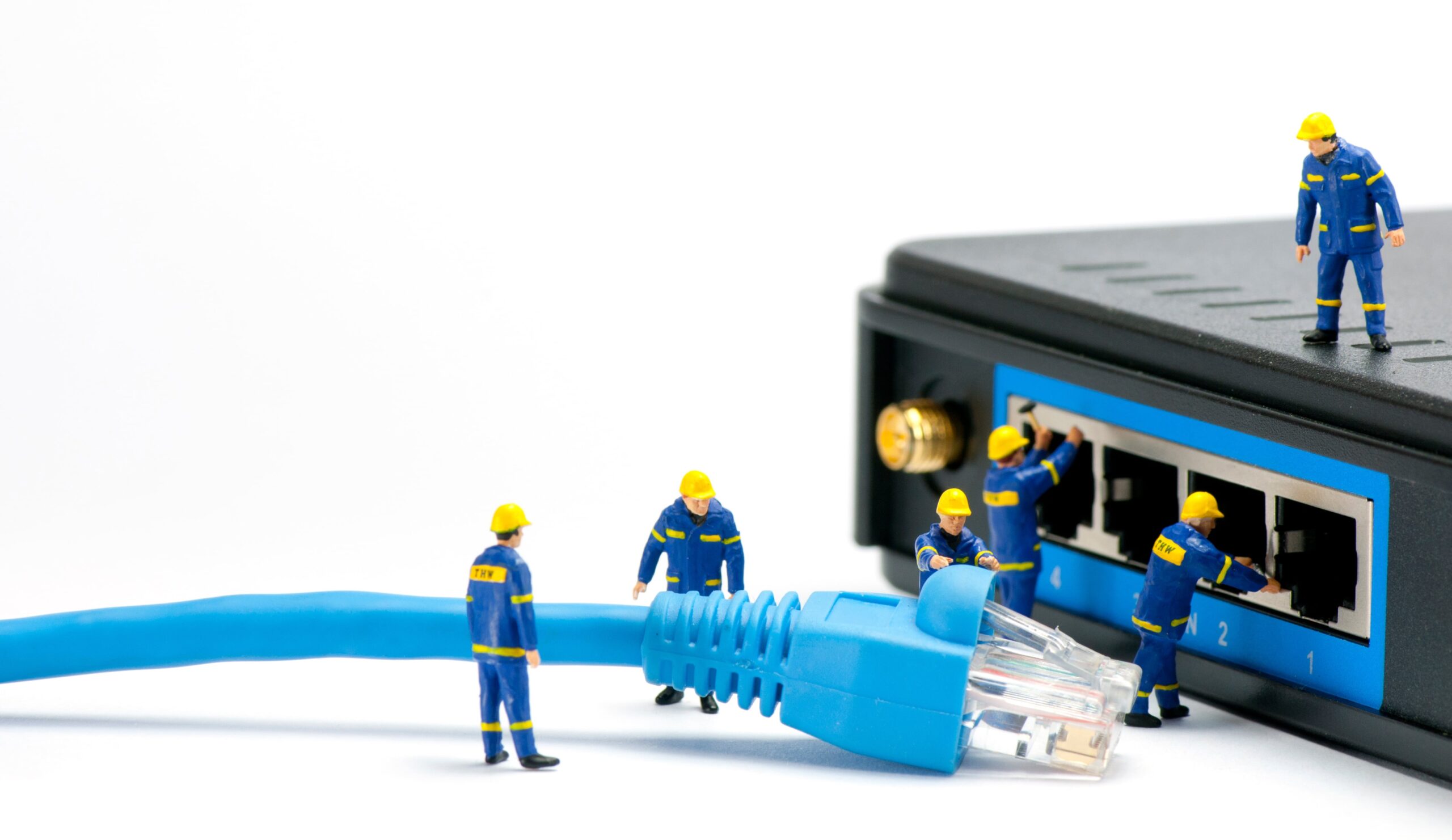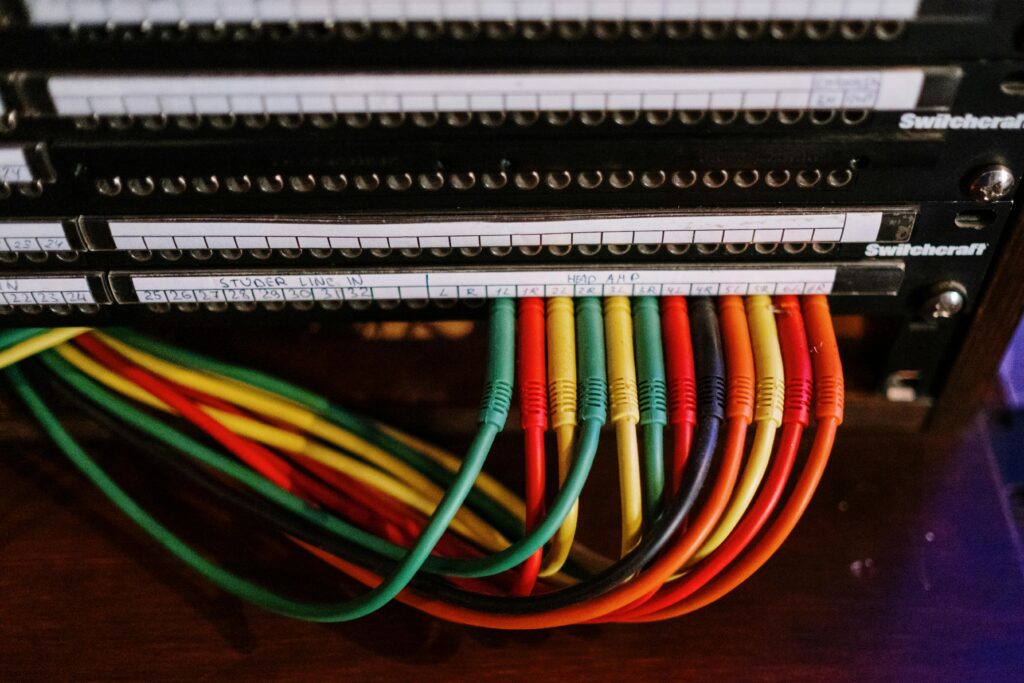Editor’s note: if you’d like a quick purchase offer for network equipment, click here.
In this article, we’ll share a few tips on how to sell your used networking equipment.
When you’re going to sell your used networking equipment, one typical misstep can make a world of difference.
Scammers, shipping issues, and logistical nightmares are all too common when reselling enterprise IT.
We’ve been around the block a few times as networking disposition experts.
So, check out some of our tips that can help make the sale of your networking equipment painless.

Used Networking Hardware: Handle with Care
Switches may not be as heavy as server racks, but they are still surprisingly delicate in shipping.
Try to use the original boxes if possible, as that ensures the lowest chance of damage in transit.
If you do not have the original boxes, a custom liquid foam mold is the next best thing.
Obviously, with a massive lot of networking equipment, the strapped pallet and truck route is more feasible.
There is Value Hiding in Even the Most Seemingly Worthless Equipment
There is currently a mindset in IT that sees most used equipment as worthless.
Or at least not worth the hassle of doing inventory and valuations of the equipment.
This is not at all the case.
Even hardware that is of a relatively low-value whole can contain components that are quite re-marketable.
The complexity of network equipment varies a great deal.
It ranges from huge monolithic routers and switches to the smallest of components like SFPs and other adapters.

Network equipment that is no longer cutting edge can be taken apart and assessed on a component by component level.
From there, often new value is found. Value after is thoroughly tested to ensure proper functionality and then made ready for sale.
Don’t Misrepresent the Condition of Your Equipment
Providing accurate information about your hardware is important. Of course, this necessitates that you actually know about your hardware.
Some think that they can misrepresent the condition of their equipment for a quick buck.
Perhaps they believe the firm or buyer that they are selling it to won’t bother to check. They probably will.
Don’t characterize equipment as working unless you have tested it or used it in production yourself.
Reputable companies engaging in ITAD, or IT Asset Disposition, must validate each and every item they resell.
They will find a defective product and make sure that it works before they can sell it.
It wouldn’t be a good thing if their testing finds that some of the hardware you gave them doesn’t work.

If this turns out to be the case, this will inspire them to carry out even more testing on your equipment.
If you have been untruthful about your hardware and it ends up costing the company that purchased some money, rest assured that the company will be in touch for some kind of restitution.
Good ITAD firms will test your equipment and pay you according to the value of your equipment in light of the success or failure of their testing.
End-users buying your equipment directly may or may not try to get their money back.
Even if there is no financial risk, you don’t want the bad mojo that comes from donating or selling non-functional hardware masquerading as working hardware.
A Complete and Thorough Inventory Will Make Everything Easier
The best tool in any activity like this is a complete inventory of your equipment.
This should contain serial or model numbers, purchase dates, condition of the hardware and possibly even pictures.

Providing this to an outside firm will give them all the information they need to know to assess your environment.
Generally, a purchase order will be initiated to cover the estimated value of the equipment, with payment coming as soon as your equipment has arrived at their facility and been tested to be in the stated condition.
Different Resale Values for Different Vendors
Different manufacturers have different characteristics when it comes to reselling and remarketing.
Cisco hardware can be rather difficult to resell, especially on your own.
Juniper Networks comes out with new models frequently so unfortunately, it is sometimes hard to resell them.
But if the hardware is not too old it can be quite valuable for a small window of time.
Extreme Networks is so new that it is hard to anticipate what will happen to its used equipment when it enters the resale market.
It’s really advisable to sell your network equipment to a firm with lots of experience with these different manufacturers.
They can leverage this experience to get value out of your used networking equipment and in turn, get you more money.
The money you earn will likely exceed anything you could have made from finding buyers yourself and you avoid reassigning IT professionals away from their regular tasks.
Assessing Your Equipment’s Value: Doing it Yourself versus Selling it to a Firm
You could do you own research and estimate the market value of all your equipment, but it would be much simpler, easier and much less headache if you rely on a company that specializes in this activity.
Make sure you have the correct serial and model numbers because this will not only give you false impressions about the value of your equipment but also confuses your potential buyer.
You could look up these prices yourself, but it would be much easier to hire a professional firm that handles this type of thing.
Sell Used Networking Equipment to a Firm Specializing in Used Networking Equipment
It is a lot simpler to sell all your networking equipment to a firm specializing in IT equipment disposition. This frees up you and your staff from doing something that you likely do not have experience doing. Finding a home for used IT equipment is not part of the typical IT worker’s skill set.
It is much more efficient to let your team do what it does best: managing your organization’s production equipment. Then you can leave the decommissioned and aging equipment to the specialists.





